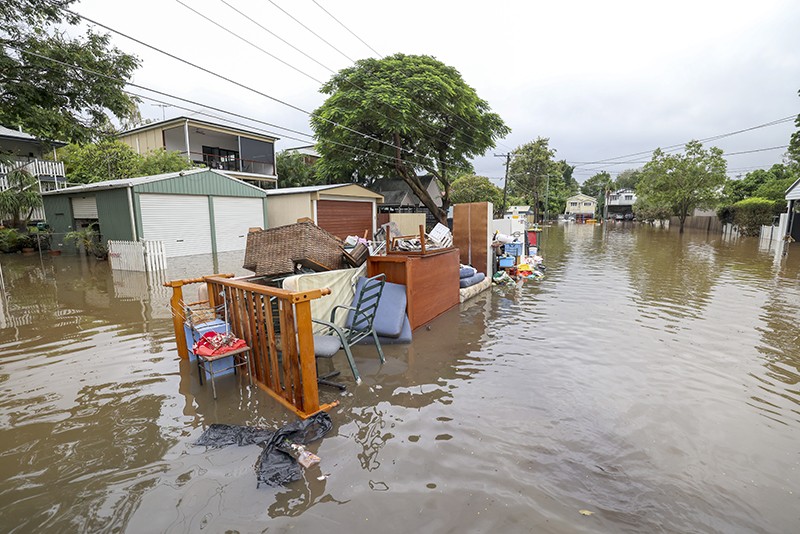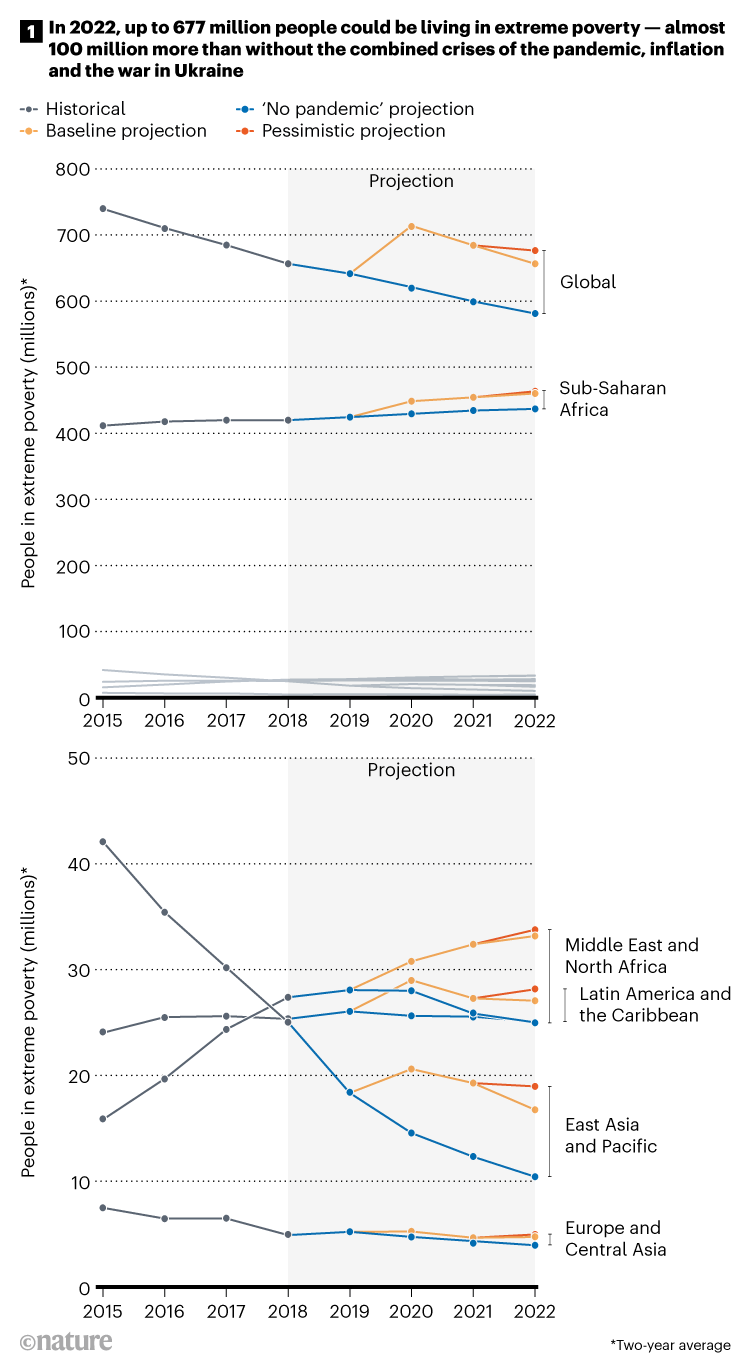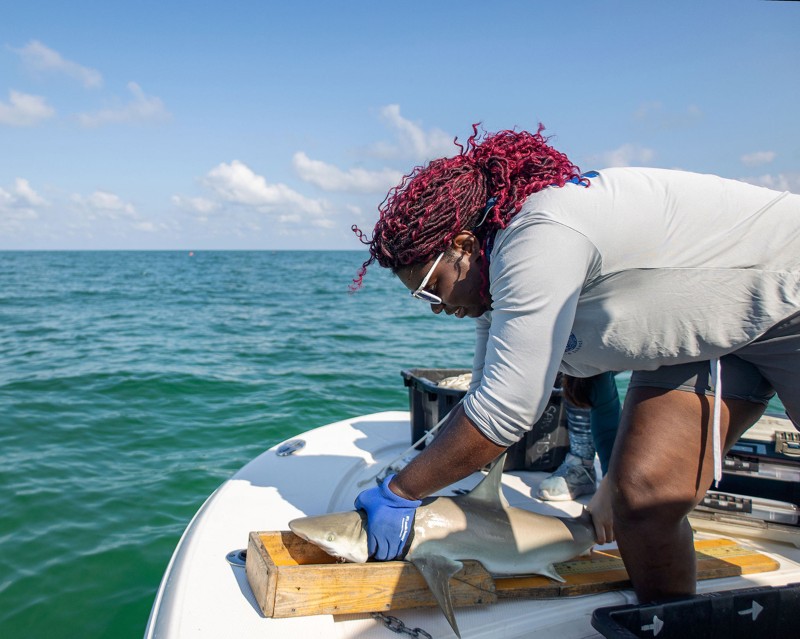Hello Nature readers, would you like to get this Briefing in your inbox free every day? Sign up here
Rare ‘triple’ La Niña climate event
A long-running La Niña climate event could persist into 2023. That would make it a ‘triple-dip’ La Nina, lasting three years in a row — which has happened only twice since 1950. So far, the event has contributed to flooding in eastern Australia and exacerbated droughts in the United States and East Africa. Scientists say such a long La Niña is probably just a random event, but some researchers predict that climate change could make La Niña-like conditions more likely in the future.
Biden nominates new science adviser
US President Joe Biden has nominated applied physicist Arati Prabhakar to be head of the White House Office of Science and Technology Policy and his next science adviser. She is a former director of the Defense Advanced Research Projects Agency (DARPA) with extensive experience in both government and the private sector. Scientists contacted by Nature applauded Prabhakar’s nomination. “She’s very engaged with how to make science and technology work to advance public policy on significant societal challenges,” says behavioural scientist Margaret Levi.
Cancer cells wake up when people sleep
Researchers have discovered that breast cancer cells are more likely to jump into the blood when people are resting. The revelation is relevant because cancer is at its deadliest when a tumour’s cells worm their way into the bloodstream and travel to a new location in the body to set up shop — a process called metastasis. It doesn’t mean that people with breast cancer should avoid sleep — that’s bad for you. But it does give clinicians a better understanding of how to track these rogue cells. “The first lesson for me is that the time of day you take a blood sample can give you misleading information”, says cancer biologist Chi Van Dang.
The science of inequality
Feature
How COVID unbalanced the scales
Troubling data show how the pandemic has exacted an unequal toll, pushing tens of millions into poverty and having the greatest effects on already-disadvantaged groups. Six stark graphics reveal how the pandemic has worsened existing inequalities and exposed others in terms of income, health, safety and more.
News
Women’s contributions often overlooked
Women are less likely to be credited with authorship on scientific papers or patents than their male peers, despite doing the same amount of work. An innovative analysis of how research contributions are recognized has revealed what many female scientists have long suspected, but researchers have struggled to demonstrate because measuring missed opportunities is challenging. A team studied the outputs of almost 10,000 research groups in the United States and found that women were around half as likely to be named an author on a scientific document as men. The authors of the analysis say this is because women’s contributions to research are “often not known, not appreciated or ignored”. The results also partly explain the well-documented trend of women publishing less than men.
Nature | 5 min readReference: Nature paper
Opinion
Help research work in the real world
Immunologist Kondwani Jambo recalls a recent tour in which he showed visitors his Malawian laboratory’s expensive, top-quality equipment — metres away from a hospital where people are dying because they lack access to a US$2 course of generic antibiotics. “It’s gut-wrenching … but that’s just how the funding works,” he writes. He suggests that funders could partition global-health grants so that some of the money goes to clinical care in the areas where research is taking place.Jambo also highlights how the practical challenges of doing research in Malawi are often ignored by reviewers and editors. “It takes at least two months for me to order and receive a specific antibody,” he notes. “It becomes a major challenge when reviewers demand follow-up experiments, for little real value, without considering the work this would entail.” Another issue: risky repeated invasive sampling of patients when there are few critical-care facilities to treat them if anything goes wrong. Jambo suggests that journals could allow a ‘context of the research’ section for authors to describe the limitations and restrictions under which research is conducted.
Where I work
“Sharks have been on the planet longer than trees or dinosaurs,” notes marine scientist Jasmin Graham, shown here releasing a blacknose shark (Carcharhinus acronotus). “I study how the millions of years of evolution have led to the weird faces of animals such as hammerhead sharks and sawfish,” she writes. She also trains researchers to be allies of interns from minoritized groups by being mindful of how identities affect peoples’ experiences. “Having an army of allies drowns out the bad players,” she says. (Nature | 3 min read)
"triple" - Google News
June 24, 2022 at 04:56AM
https://ift.tt/nQ2D7b6
Daily briefing: Rare 'triple-dip' La Niña climate event looks likely - Nature.com
"triple" - Google News
https://ift.tt/A5nJUOG
https://ift.tt/yLktJXC
Bagikan Berita Ini

















0 Response to "Daily briefing: Rare 'triple-dip' La Niña climate event looks likely - Nature.com"
Post a Comment